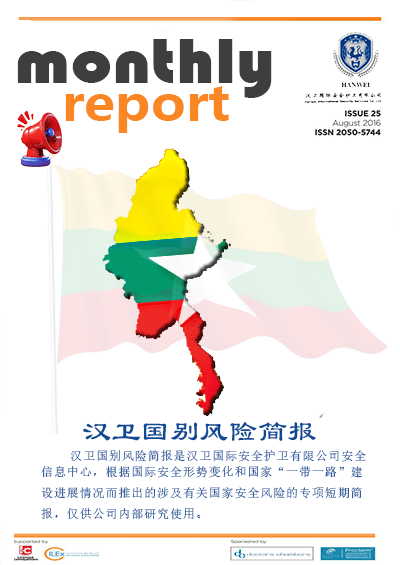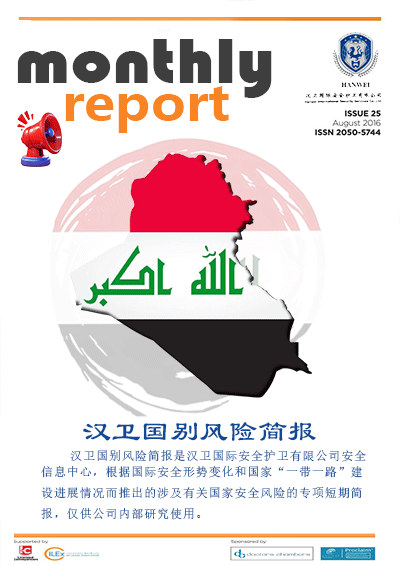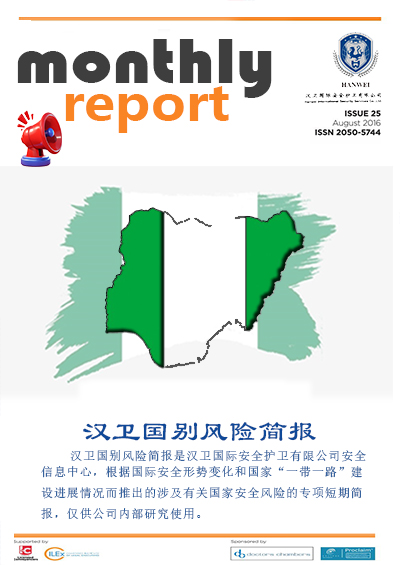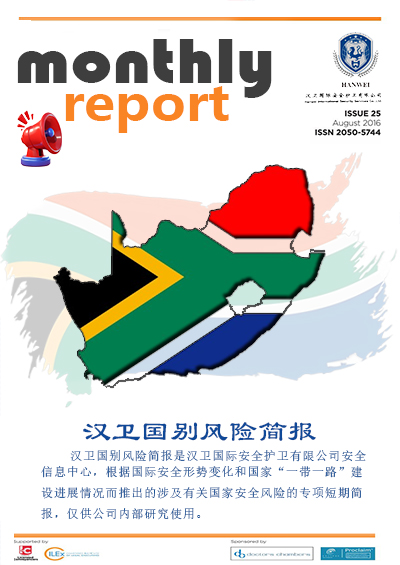Country Risk Security Brief:
South Africa Security Situation Review July 2024
Researcher No.006
According to monitoring reports from Hanwei International's security officers stationed in South Africa and media coverage, nearly 200 representative security incidents were recorded in South Africa in July (incomplete statistics), with frequent occurrences of social security incidents such as shootings/murders, thefts/robberies, fraud/extortion, etc. Some incidents even escalated into serious criminal cases, threatening the lives and property of Chinese citizens and employees of Chinese enterprises in South Africa, particularly concentrated in Cape Town, Johannesburg, and the Durban city center (the latest crime hotspot).
Hanwei International analysis suggests that with the establishment of South Africa's new government and the announcement of its cabinet list, the overall political and economic situation is trending positively. However, opposition voices remain, with rising opposition parties significantly sharing power and failed negotiations on provincial government formations sparking controversies. The fluctuating political landscape and the "divergent" tone of public discourse are also profoundly affecting the volatility of the South African rand against the US dollar. Even as the new government prepares to push for economic reforms, existing longstanding issues continue to trigger public conflicts this month. In terms of social security, violent incidents such as robberies, kidnappings/murders, armed attacks/conflicts remain frequent, with a surge in shootings and kidnappings this month, including bomb attacks in multiple locations causing significant casualties. This report highlights representative security incidents to alert Chinese citizens in South Africa: in a country where violence has become a way of life, constant vigilance is essential.
Key developments include:
1. Persistent instability factors amid South Africa's positive political and economic trends this month.On July 1, local time, South African President Cyril Ramaphosa announced the new post-election government cabinet list, with the African National Congress (ANC) retaining only 20 out of 32 ministries, continuing to hold key departments such as defense, finance, foreign affairs, justice, and police, while the rest were allocated to opposition parties. The Democratic Alliance (DA), as the second-largest party in the coalition government, secured six ministries including home affairs, public works, and environment, with other opposition parties obtaining important portfolios such as land reform, public services, and sports. Reactions to the cabinet reshuffle were mixed: South African Federation of Trade Unions Secretary-General Zwelinzima Vavi expressed disappointment at the DA's acquisition of numerous key ministries; the Economic Freedom Fighters (EFF) criticized it as a "conspiracy" of coalition governance between the ANC and DA; while the United Workers Union voiced support, hoping the new government would actively address issues like employment. With the new cabinet's confirmation, the rand rebounded strongly, "rising to 18.47 against the US dollar, a 0.7% increase from the previous trading day," further demonstrating the market's sharp reaction to political instability.
Simultaneously, negotiations for forming provincial unity governments faced significant challenges, with conflicts arising over the fairness of key position allocations. For instance, in Gauteng, after ANC provincial premier Panyaza Lesufi twice delayed announcing the provincial executive list, negotiations between the ANC and DA during a special provincial parliament session on July 2 reached another impasse. The DA demanded at least four critical portfolios such as economic development, education or health, transport, and infrastructure, but the ANC insisted on offering only three, leading to a stalemate. On July 3, Premier Lesufi announced the formation of a minority government with parties like the Patriotic Alliance and Inkatha Freedom Party, excluding the DA.
2. Serial shootings spark community panic; bomb attacks target mosques and ATMs.Cape Town in the Western Cape experienced a weekend of serial shootings across multiple areas, resulting in at least nine deaths and multiple injuries. On July 19, a deadly shooting in the Nyakathisa informal settlement left a man and woman dead on the spot and a 4-year-old girl hospitalized. The same day, three deaths (one woman and two men) occurred in Delft, with police intensifying manhunts though motives remain unclear. On July 20, a man was killed and another seriously injured in Khayelitsha's Endlovini informal settlement; meanwhile, a horrific shooting in Langa's new apartment area claimed two lives (a man and woman) and injured four others. On July 8, two homemade bombs were planted by unknown suspects at a mosque in Durban North, KwaZulu-Natal. The devices, made with commercial explosives, fortunately lacked timers and caused no casualties after being reported by patrol guards, prompting a large-scale police operation. Gauteng's Ekurhuleni region saw frequent ATM bombings, leaving fewer than five machines operational locally, compounded by escalating cash-in-transit heists devastating public assets. On July 11, police arrested two suspects after a fierce shootout on the M7 highway near Tokoza, with a third suspect escaping injured.
3. Multiple high-profile kidnappings reported this month, including Chinese citizens.On July 4, South African police special forces successfully rescued a Portuguese butcher shop owner kidnapped in Johannesburg. Reportedly abducted for ransom, prompt reporting prevented payment, with elite task forces tracking leads to free the hostage and recover his bank cards/wallet, arresting five suspects. On July 8, elite police engaged in intense firefights to rescue two kidnapped businessmen during transit, capturing four suspects (one injured) after tracing ransom demands. On July 14, Gauteng police arrested 14 suspects (including three Chinese and two Mozambican nationals) freeing a Zimbabwean businessman abducted from his workplace, with seized premises revealing large cash withdrawals. On July 19, Auto X CEO, a prominent battery manufacturer, was abducted by masked assailants during his commute, with ongoing investigations describing four to five perpetrators transferring him from his Mercedes into an unmarked Nissan NP200 bakkie. On July 24, two Chinese women were kidnapped near Alexandra after visiting a camera store under their driver/bodyguard's escort, with subsequent ATM withdrawals from their cards prompting multi-agency rescues.
Hanwei International analysis reiterates that despite positive trends post-cabinet announcement, opposition dissent, power-sharing disputes, and provincial negotiation failures continue influencing rand volatility. Even as reforms advance, legacy issues fuel public conflicts. Social security remains precarious with rampant robberies, kidnappings/murders, and armed attacks—particularly this month's shooting/kidnapping spikes and bombings causing heavy casualties. This report underscores representative incidents to warn Chinese nationals: in South Africa's normalized violence, perpetual vigilance is paramount.
Recommendations for Chinese enterprises/individuals in South Africa:
1. Monitor political developments closely and prepare security measures proactively.With the new government's formation, internal conflicts over key positions persist, especially during critical provincial negotiations. Avoid political discussions in public and steer clear of protests/crowds—particularly in contentious provinces like KwaZulu-Natal and Gauteng—withdrawing immediately from conflict zones if encountered.
2. Treat violent attacks seriously—personal safety comes first.This month's kidnappings (often targeting businessmen for ransom) have caused widespread alarm, with two Chinese nationals potentially victimized for perceived affluence.
Per Chinese embassy advisories, precautions against kidnapping include:
(1) Heighten awareness:Avoid high-risk areas, solo nighttime travel, or carrying large cash/valuables; vary routines; during stops/accidents, avoid exiting vehicles—proceed to police stations; install surveillance/alarms at homes/businesses; employ private security for high-risk activities.
(2) Stay calm if targeted:Avoid confrontation; conceal assets; prioritize life safety; memorize perpetrator/vehicle details.
(3) Family cooperation:If relatives are kidnapped, immediately contact police or Crime Stop at 08600 10111.




